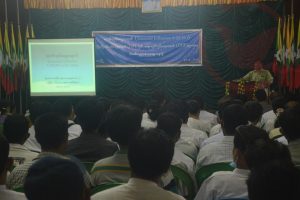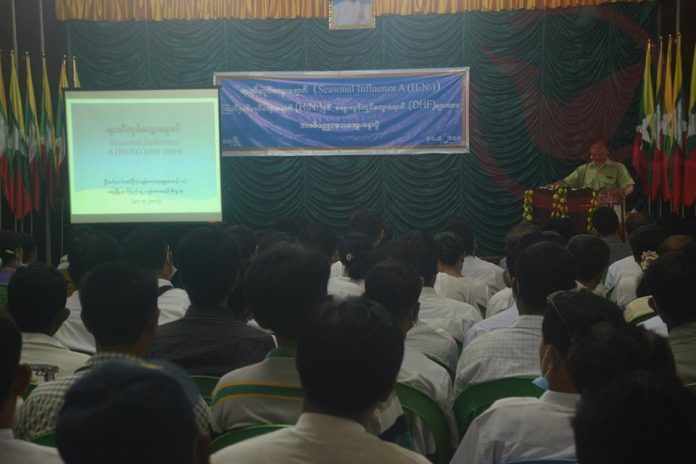As a deadly swine flu outbreak continues to spread in Myanmar, Mon State residents are urging the government to appoint a doctor to at Khawzar Administrative Unit Hospital.
Local administrators reiterated the request at an H1N1 awareness event held at the Ye Township General Administrative office on July 31.
“The general public don’t know the symptoms [of H1N1]. That’s why we need a doctor [to diagnose cases],” said U Tuu Naing, administrator of Ward 2 in Khawzar.
He added that there have been no confirmed cases of H1N1, or swine flu, in Khawzar so far, but that some children have presented with fevers and headaches.

Some chalked the delay up to bureaucratic issues, with the hospital waiting on a response from higher up the ministry’s ladder.
“We can’t decide on the appointment of the doctor at the township-level. Even the headquarters needs to get the approval from the Minister [of Health]. But I will urge the headquarters again,” said Dr Thet Paing, the medical superintendent from Ye Township General Hospital.
H1N1 is spread from person to person. Symptoms are similar to other flu strains and can include a fever, sore throat, runny or stuffy nose, body aches, headaches, chills and fatigue.
To prevent contracting H1N1, health professionals recommend frequently washing your hands, getting enough sleep, and staying home from work or school or if you do fall ill.
Up to 12 people have died after contracting the H1N1 influenza virus between July 21 and 31. The Ministry of Health has reported over 200 suspected cases and 61 confirmed cases amid the seasonal outbreak.
Dawei, Tanintharyi Region, is also experiencing a simultaneous rash of bird flu, H5N1, cases.

